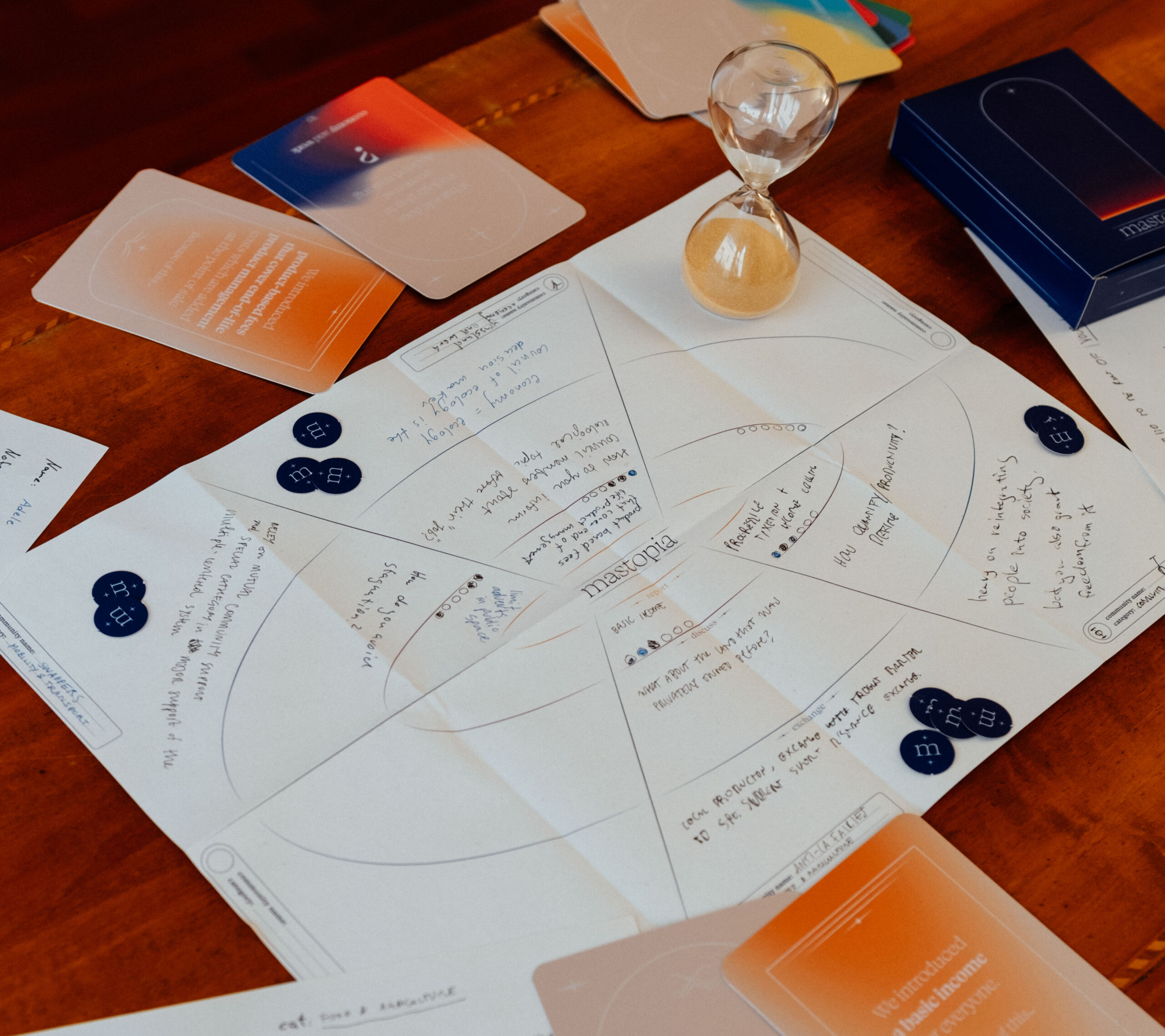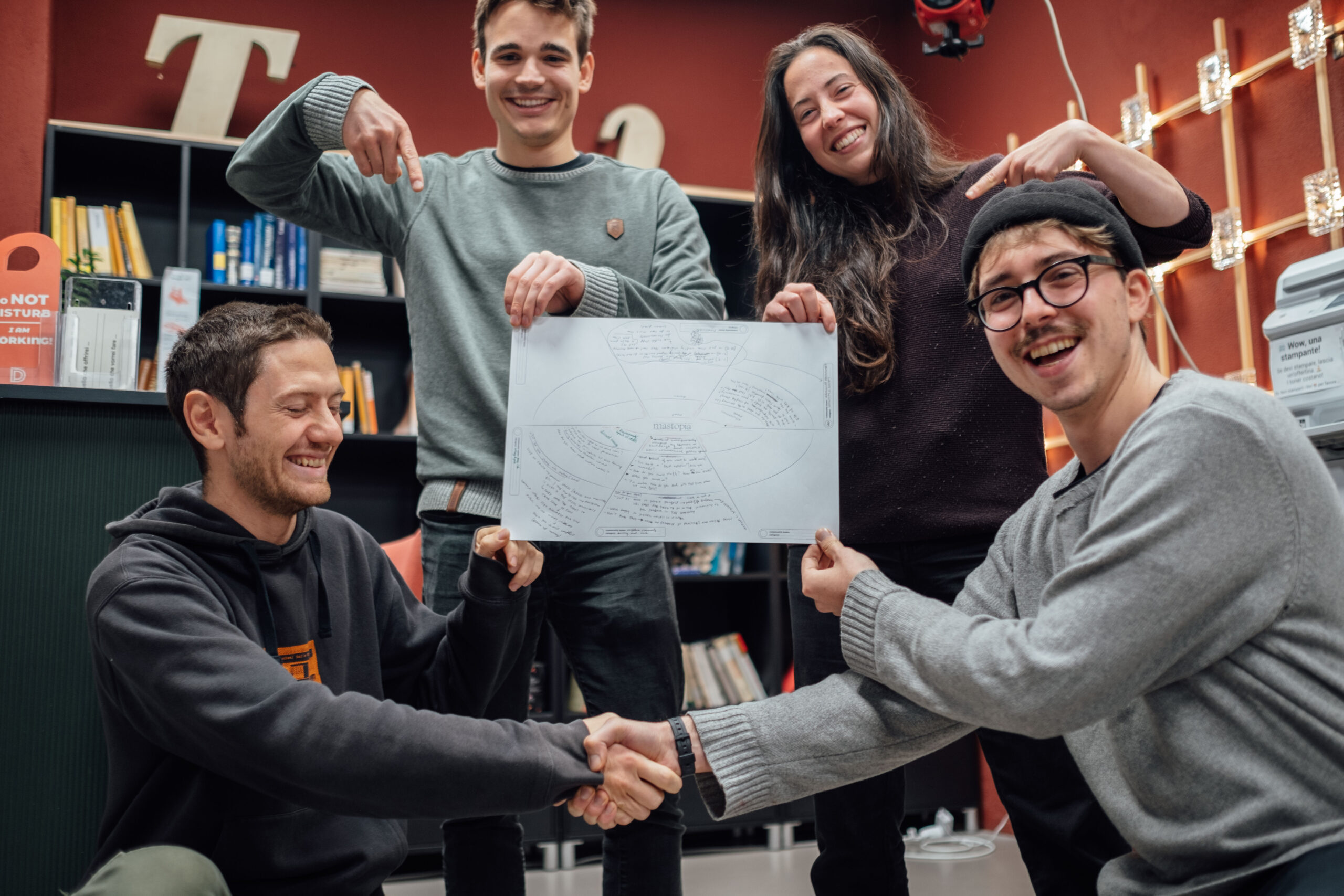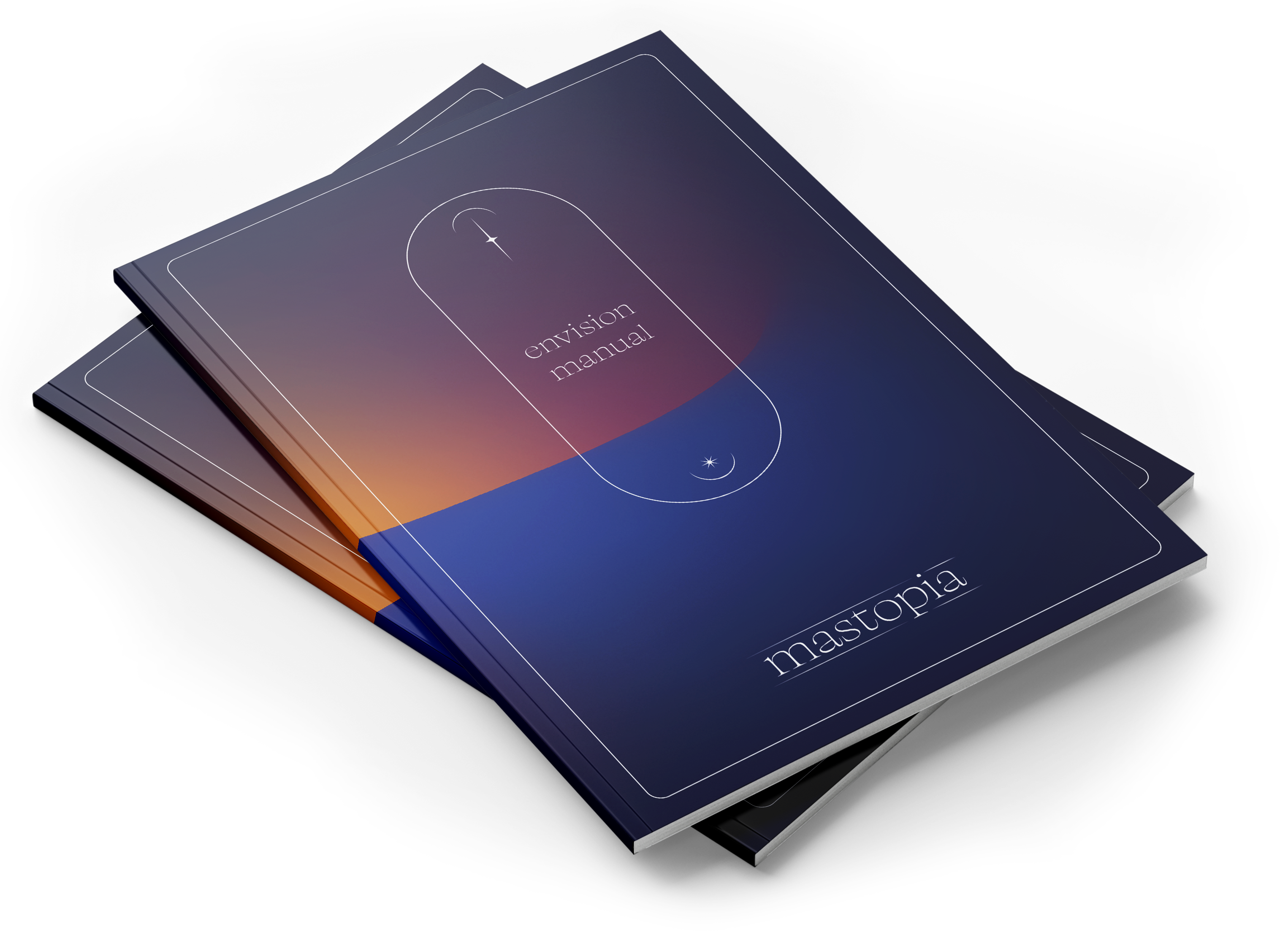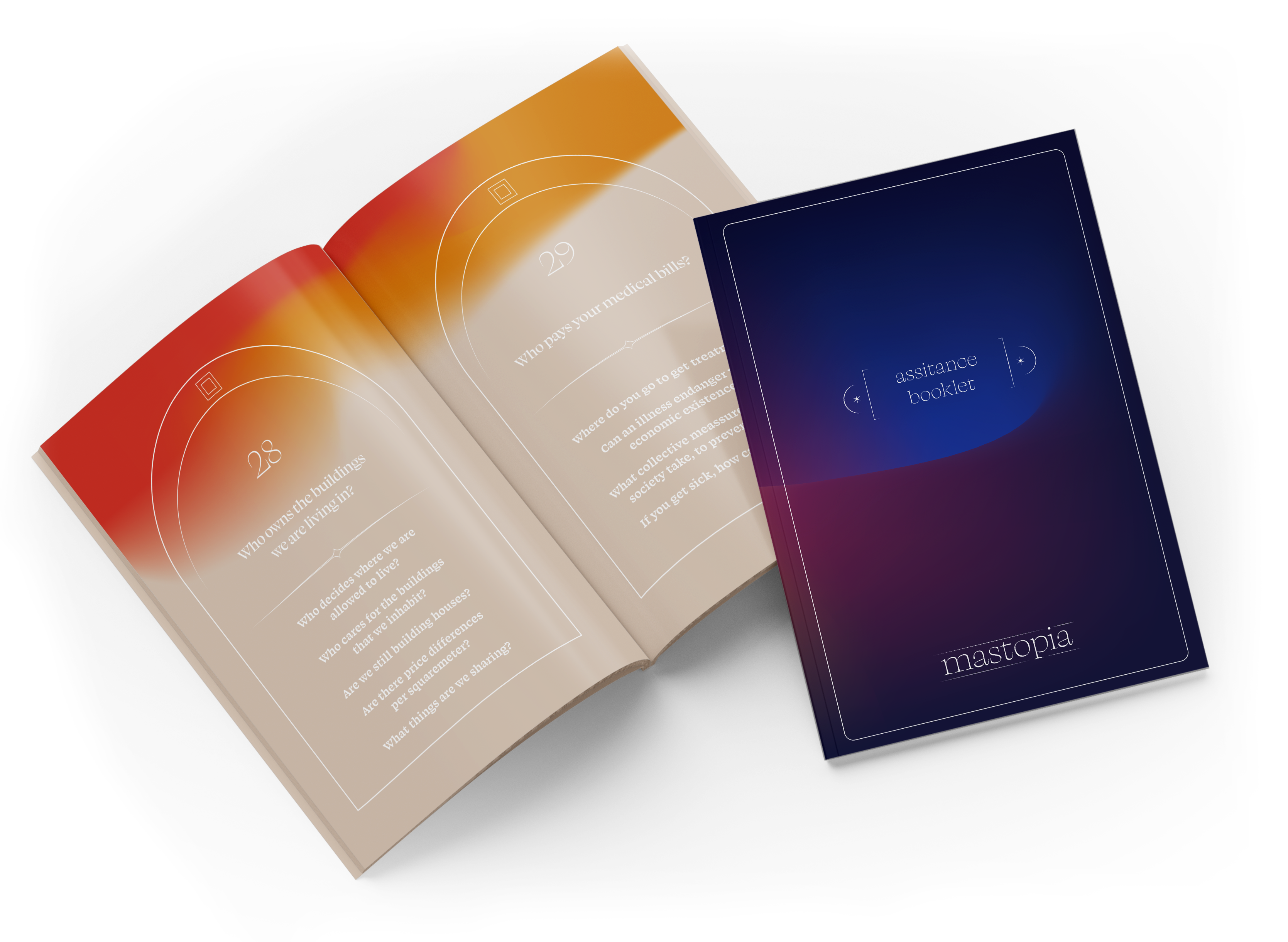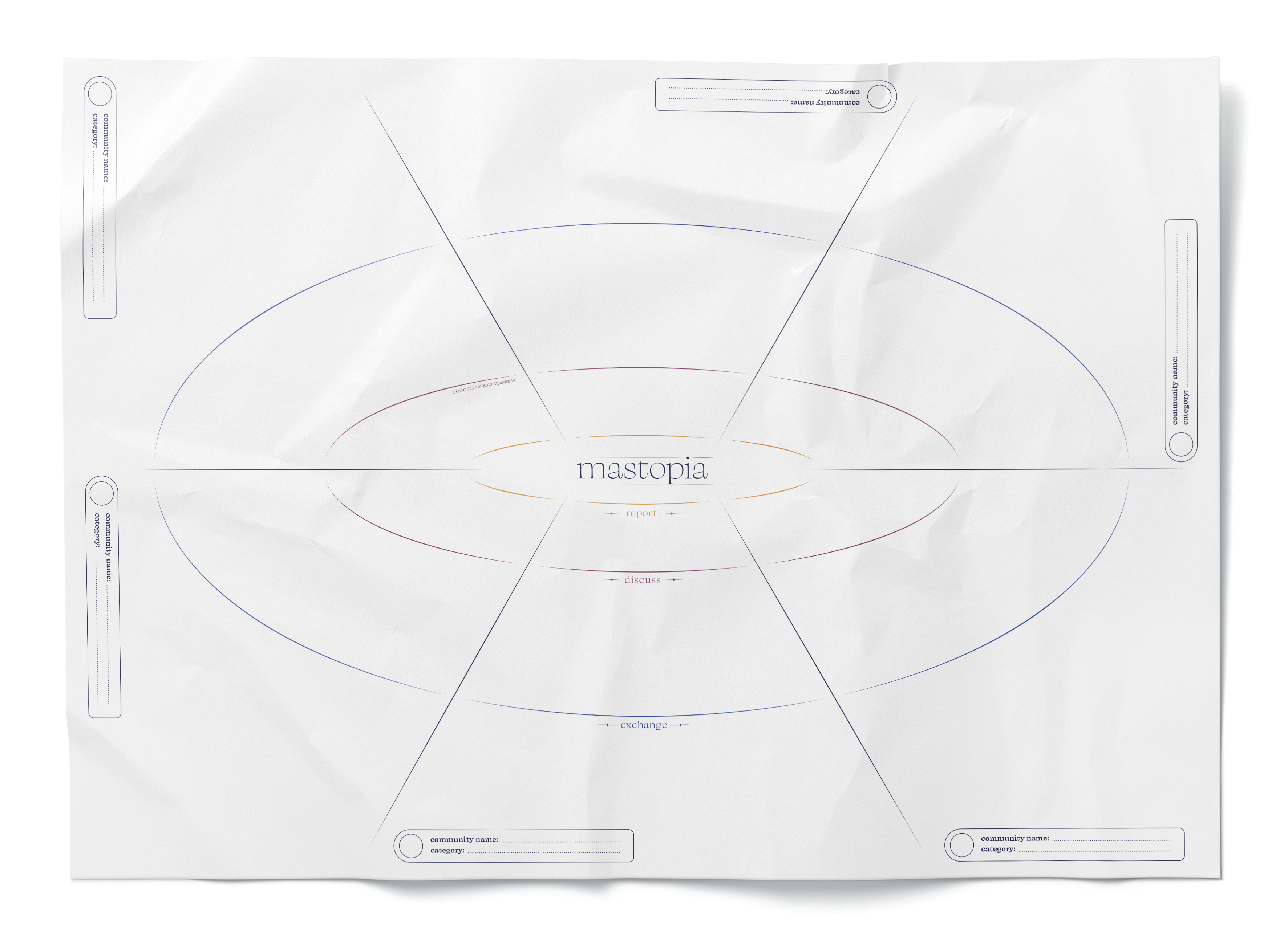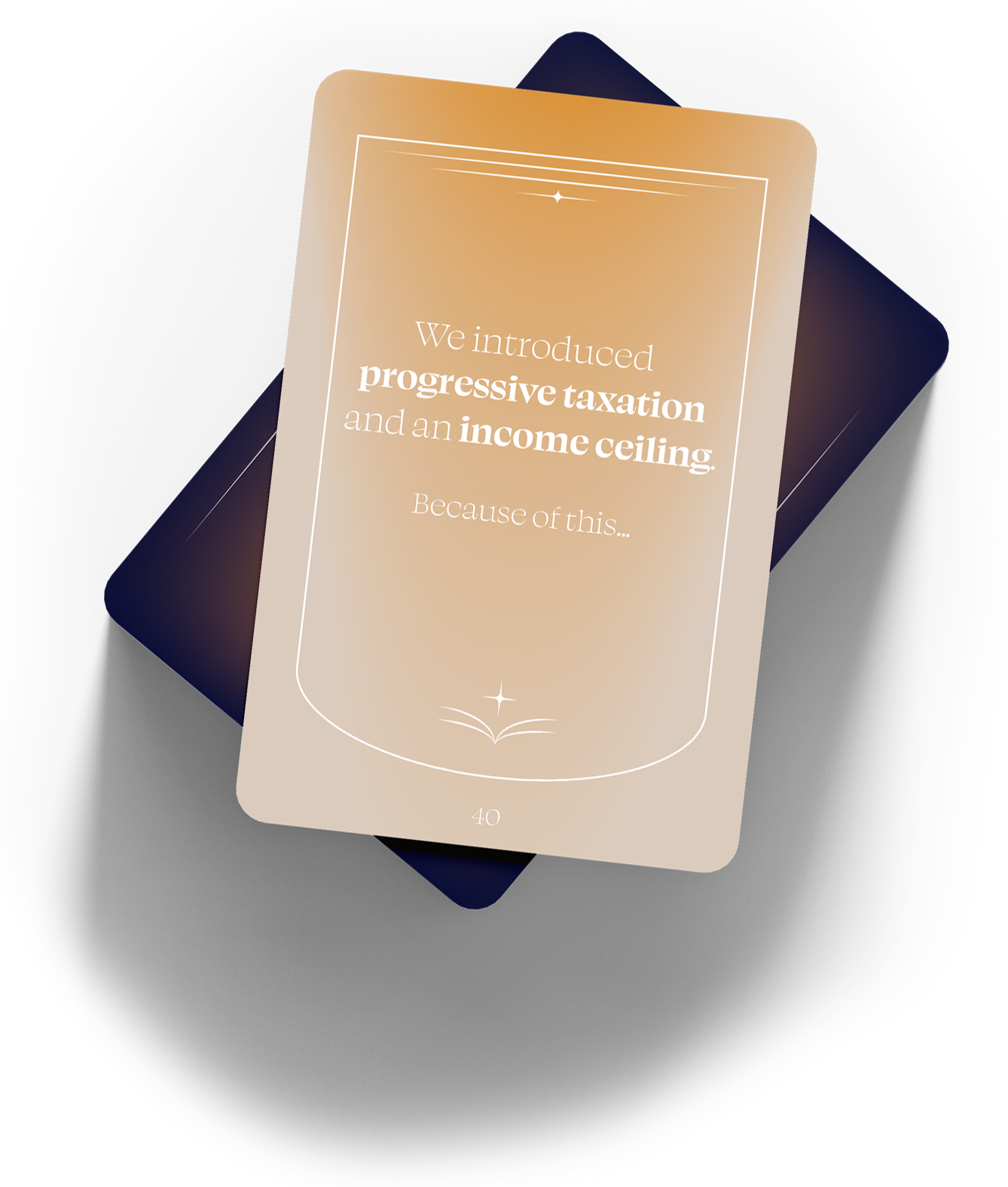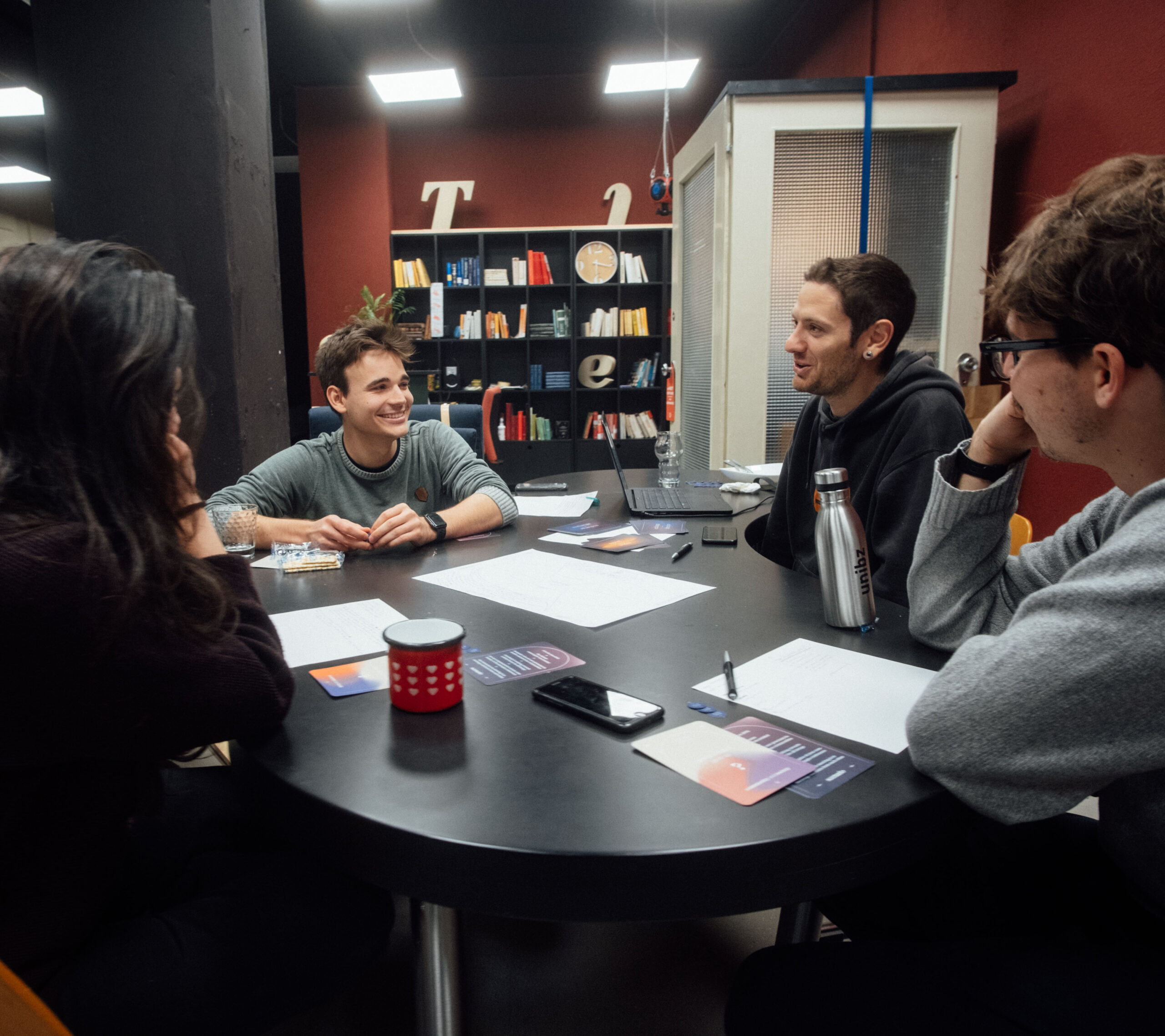mastopia
— envisioning a collective future
[2022] ‘mastopia’ is the result and outcome of my master's thesis. It is a question-based game about sharing and discussing beliefs and creating a feeling of possibility. It aims to build sensitivity for the need for positive systemic change through the means of democratic discourse, exchange, utopian thinking, and mutual acknowledgment.
To sustain an inhabitable planet, we need a rapid transformation of societies, and to do so, a change in the currently dominant human mindset is necessary. ‘mastopia’ is a framework in which the most rational person may explore utopia. It is a vehicle to distribute and multiply radical thoughts, create first impulses, and engage previously unengaged people by enabling critical reflection through utopian thinking in the context of a game.
By facilitating discourse about issues and challenges of our time and putting it in the context of utopia, it enables the players to break away from their appropriated rationality, allows them to engage with issues of our time, and to reflect on their beliefs.
The players collectively explore different issues and proposals and formulate their own solutions and opinions toward them. The goal in this is not to predict a technologically sound solution but to acknowledge the need for change and, by doing so, formulate critique.
The game is currently in revision and will be published as soon as it is done.
category
eco-social gaming framework
Master Eco-Social Design, 2022
supervisors
Prof. Kris Krois
Uwe Martin
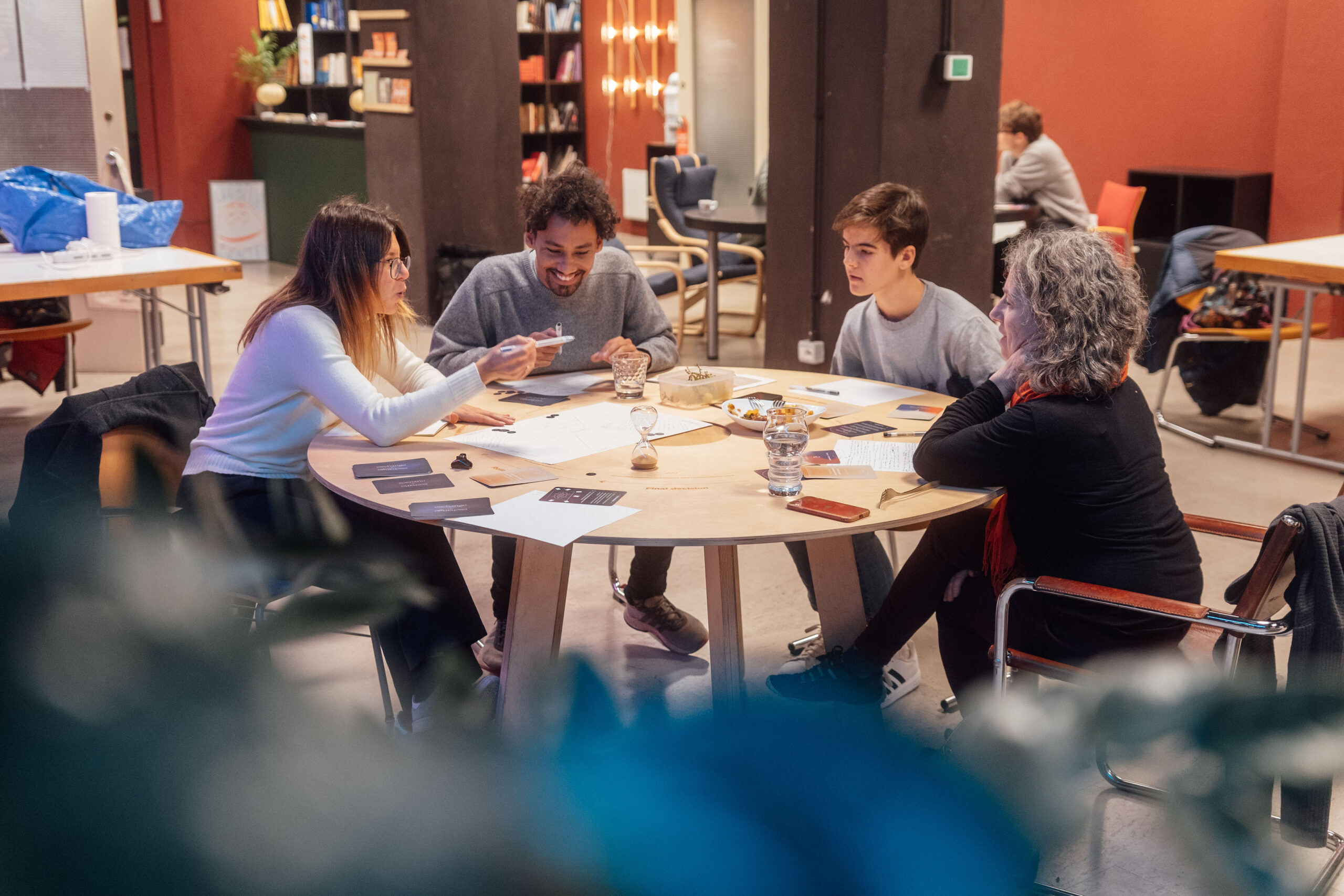
background & thesis
This thesis has been created under the overarching topic of the progressing climate crisis, arguably the most significant threat to life on earth right now, fueled by the rise of capitalism as the dominant economic system. Looking at the world right now, it begs the question, why are the responses to the possible destruction of the basis of life for humans and many other species so immensely insufficient? Why on earth (no pun intended) is change so hard to come by? How do I respond to it as an individual? And how to react as a society? How to transform our economy?
Over the course of my thesis, I researched three topics to identify potentials and challenges:
1. The individual and emotional perception of the status quo in our society.
2. Degrowth theory, as a possible alternative to the socio-economic system that is driving the climate collapse.
3. The theory of Utopia as a tool that makes radical thinking accessible to everybody.
Based on this research, I formulated my final research question.
How may utopian thinking be used as a tool to overcome the appropriated rationality imposed onto the individual through their role in society and the economic system?
core concept
'mastopia' is a question and discussion-based game for four to six players. The playtime is around 2-3 hours.
In it, the players act as representatives of future communities that come together in an annual conference. In their role as representatives, they answer questions about issues and challenges of our current time and how their future utopian community handles these issues. One of the players is playing as the gamemaster, who is leading the players through the discussion. He/she/they are following instructions from the envision manual.
32 questions in 8 categories are the base of the game. They all address the issues (e.g. homelessness, unsustainable foodproduction, lacking healthcare, colonial imbalance of suffering, ...) they refer to indirectly.
Here are some examples.
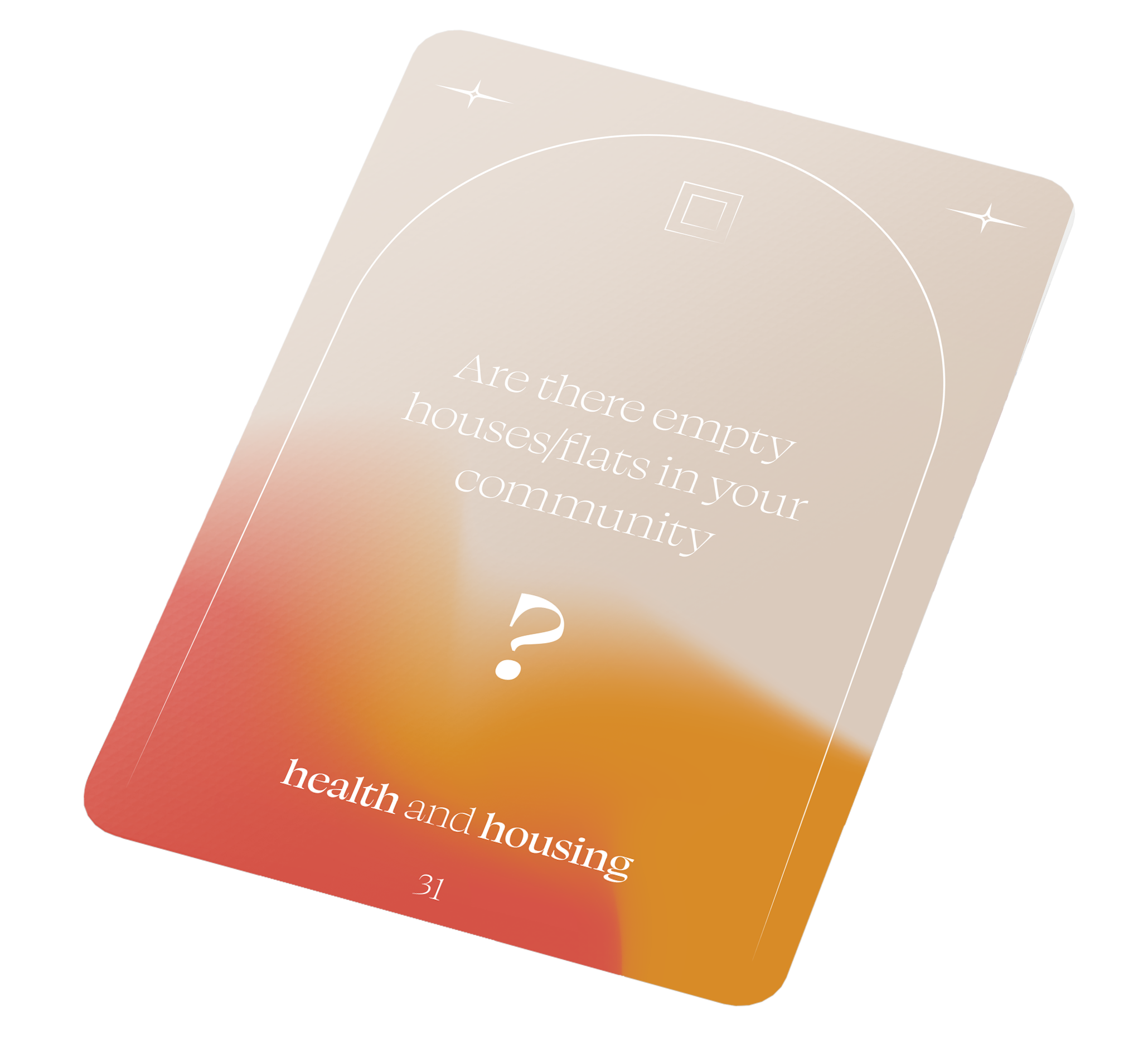
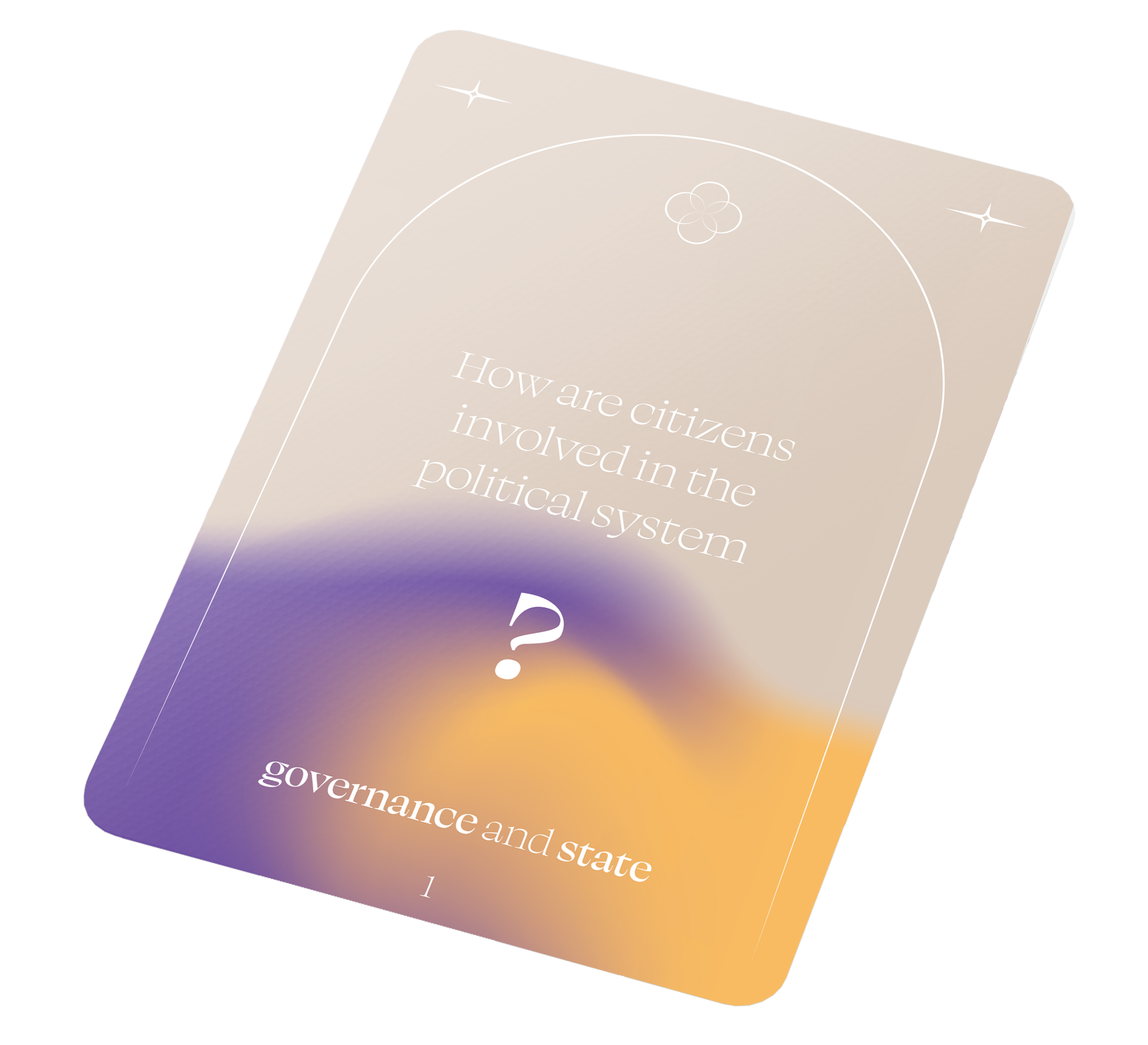
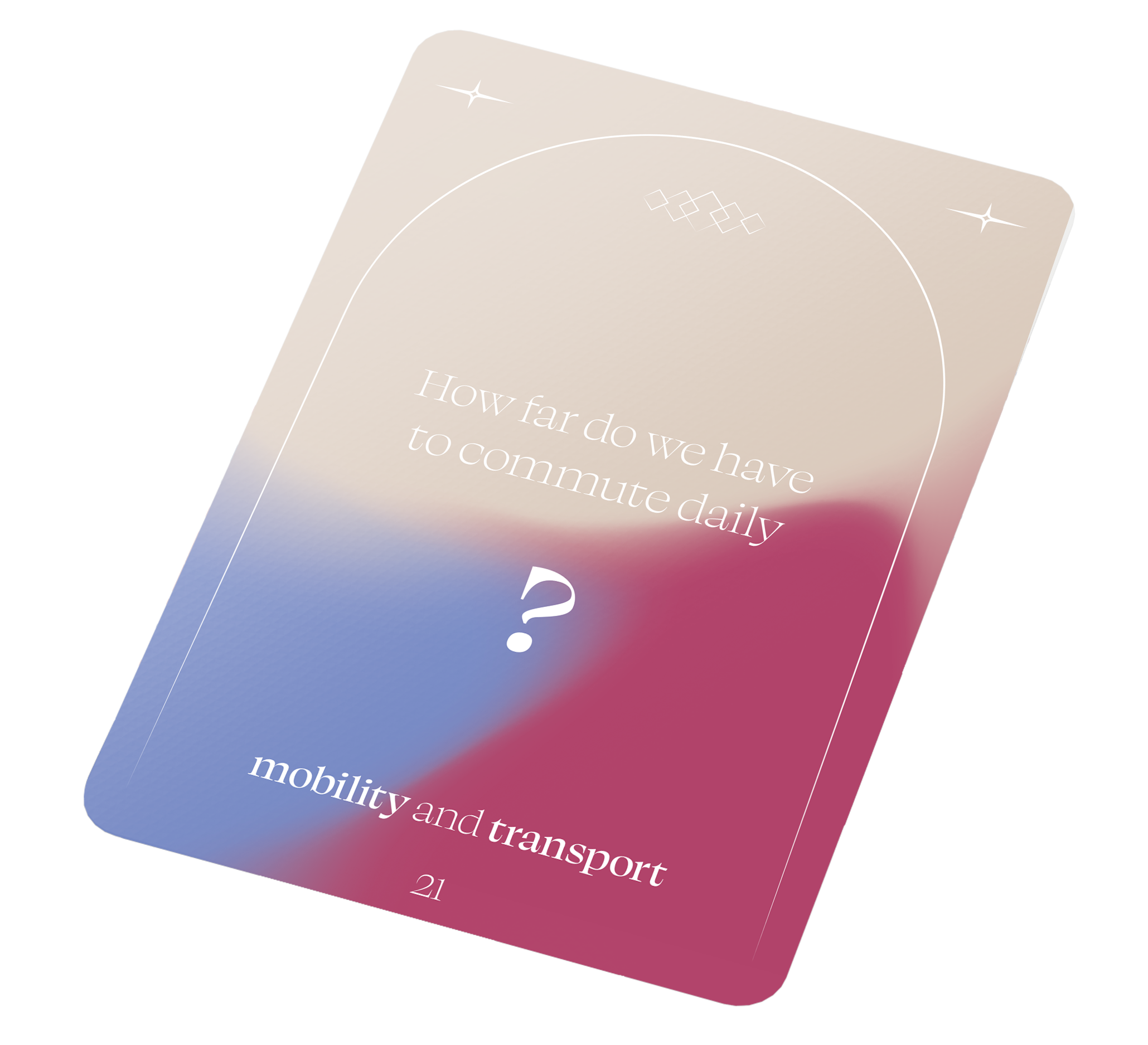
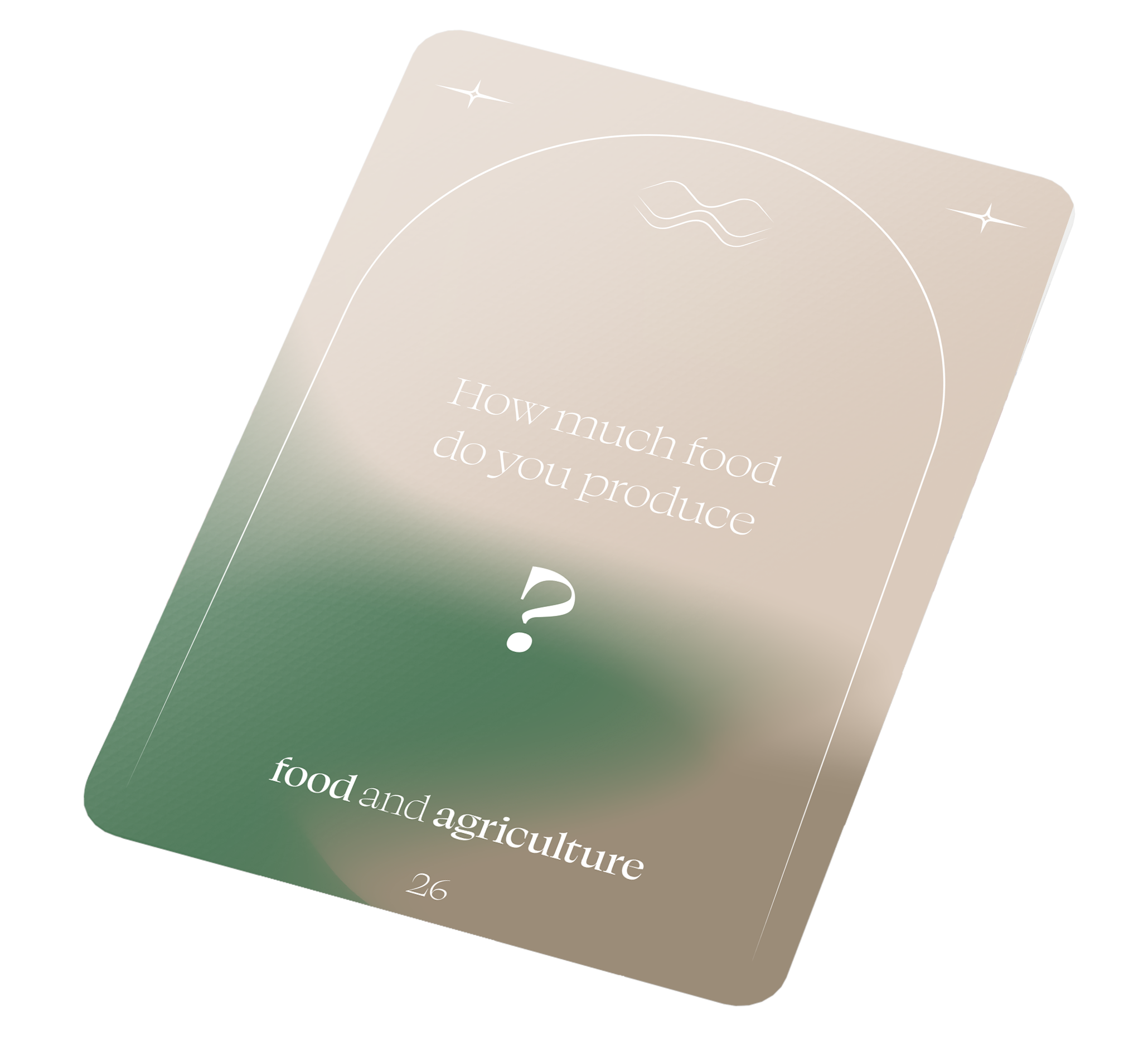
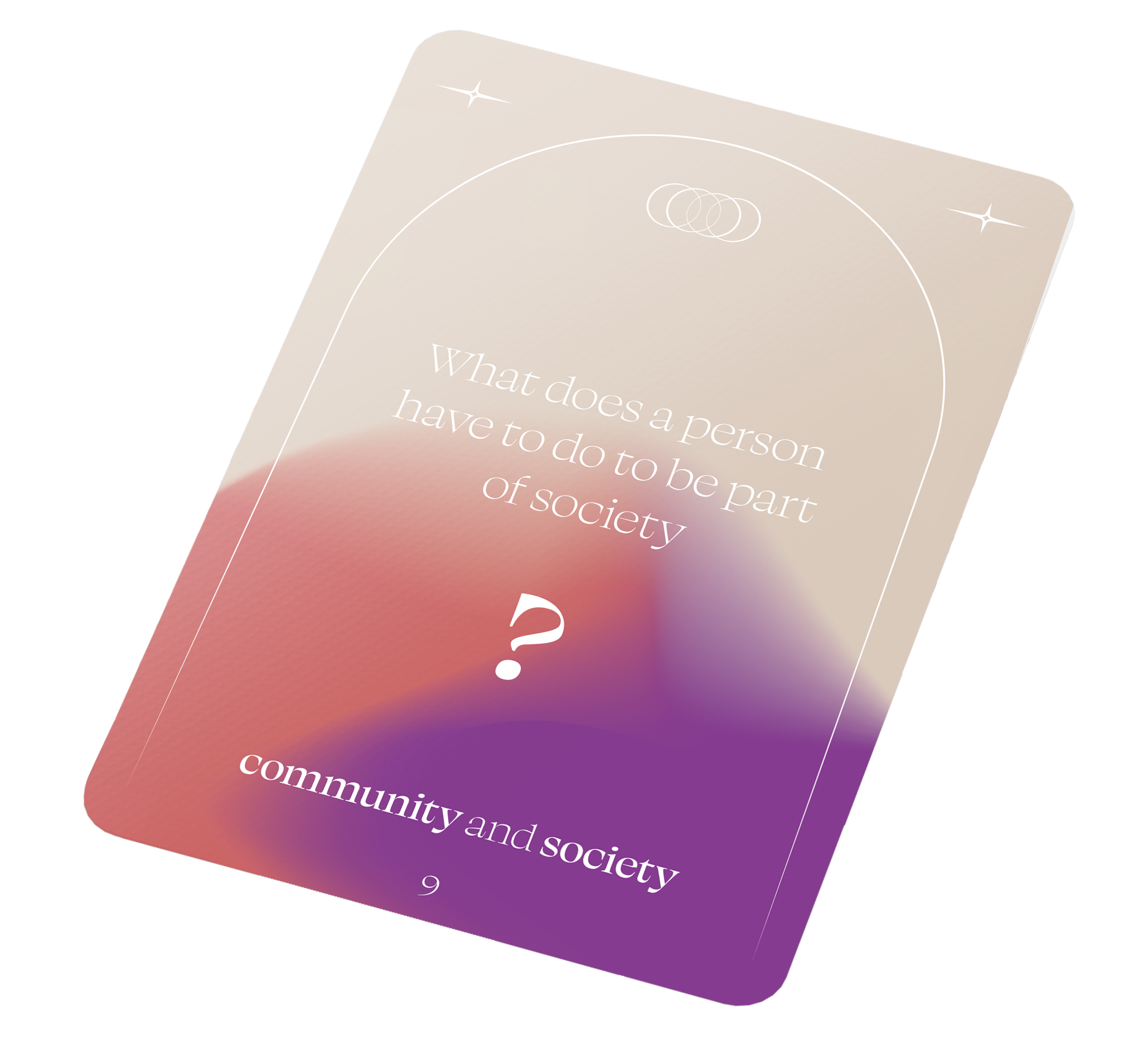

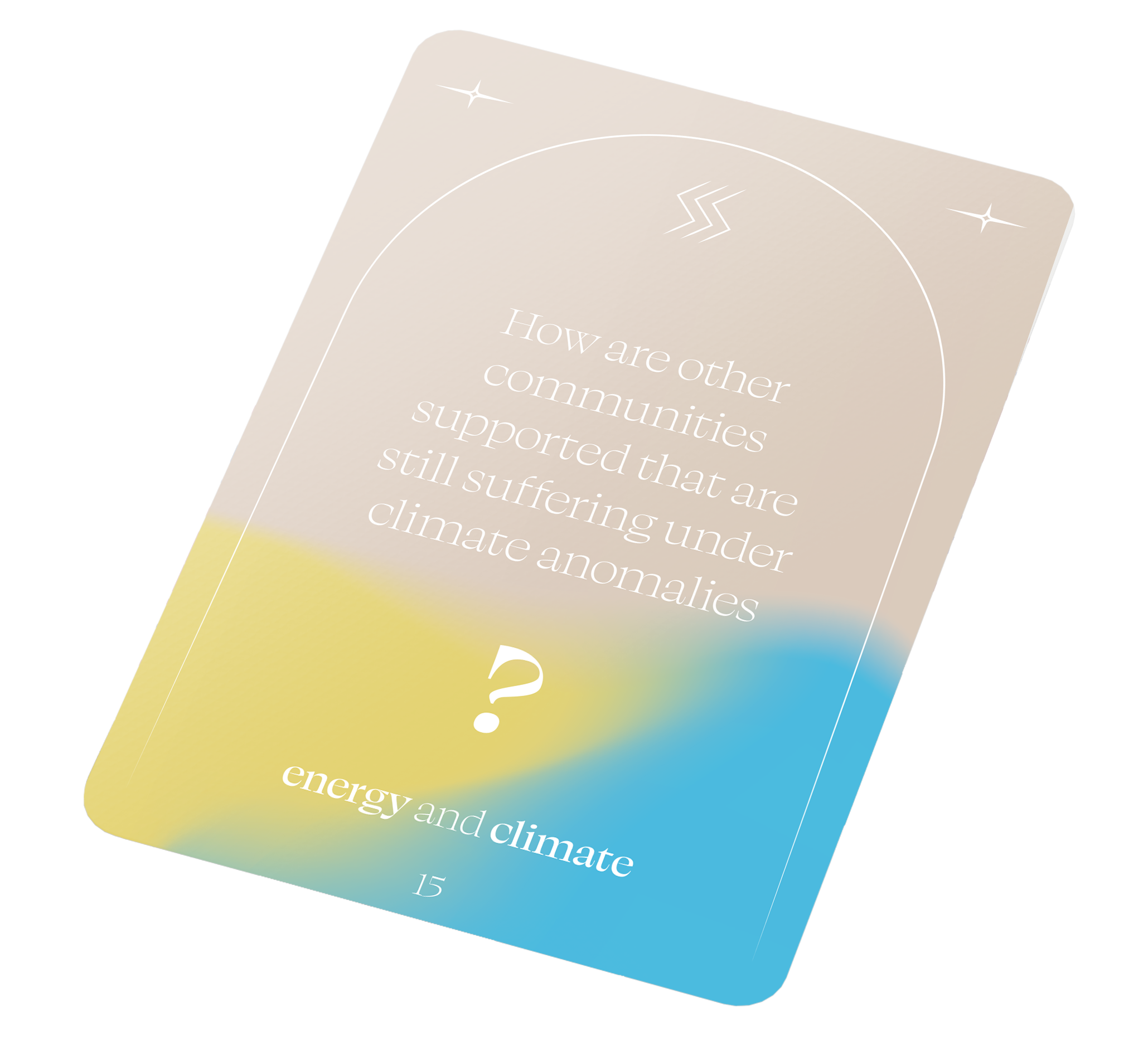
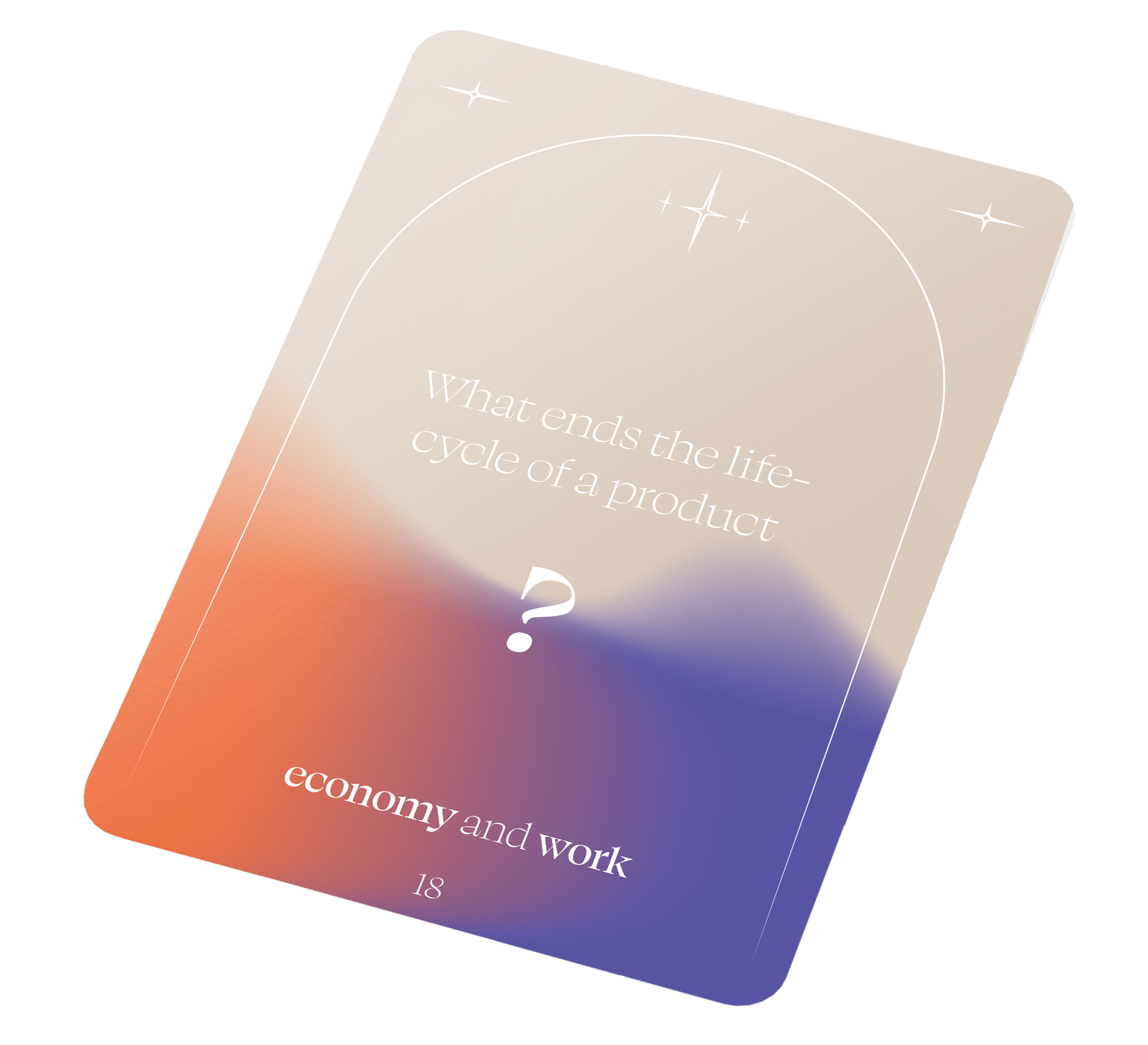
outcome
Throughout the game, they create a utopian world. A world to work towards. By facilitating discourse and putting it in the context of utopia, mastopia enables the players to think freely about how they themselves would imagine certain issues to be solved in the future.
The goal in this is not to predict a technologically sound solution but to acknowledge the need for change. The current dominant mindset of the developed countries shaped by liberal capitalist ideology has to change, and only a healthy and critical society can accept and create the basis for the changes needed for a healthy future.
By utilizing the functions of utopia and mental contrasting, the game enables the participants to indirectly formulate critique and apply it to our status quo, thus reflecting on it.
Throughout the playtime, these thoughts are collected on the 'mastopia progress sheet', which becomes like a manifest of their envisioned future. Here you can see a happy group after a successful play session.
‘mastopia’ is a framework in which the most rational person may explore radical utopian thoughts.
Thoughts they would have otherwise, in the “real” world, put aside as naive or unrealistic.
It is a glimpse into the collective future that we need to sustain an inhabitable planet.
envision manual
The moderator, or as his title in the scenario is: the exchange facilitator will read this to the other players. This is partly a script and screenplay in the parts that introduce functions of the game when accuracy is needed. In the rest of the game, it is instruction open for interpretation.
exchange cards
At the heart of the game are the questions and topics that the ‘exchange cards’ bring into the conversation. On them, the players find open-ended questions relating to pains and problems of our time, society, economy, and ecological difficulties. There are 36 ‘exchange cards’ in total, structured into eight categories. As the players are asked to answer them from the perspective of a positive (utopian) future, they become utopian questions that encompass criticism of today.
assistance booklet
The ‘assistance booklet’ contains four to five additional ‘secondary questions’ per ‘explore card’. These were designed to inspire and help the player to explore the topic of the question from the ‘exchange card’ in more depth.
On the bottom of each ‘exchange card’ is a number corresponding to a page in the ‘assistance booklet’ so players can find the additional questions more easily.
report cards
The 16 ‘report cards’ introduce degrowth proposals into the game. By framing it as if it was already implemented in their utopian vision of the future and asking them to explain what consequences the implementation in their community had, the players are challenged to actively engage with the idea without subconsciously checking if they think that it is feasible before. This bypasses the appropriated rationale of the player. Of course, the outcome that the player describes can still be negative depending on their conviction, but as the goal of this card is the personal examination and reflection about the consequences of the proposal, this is also fine.
